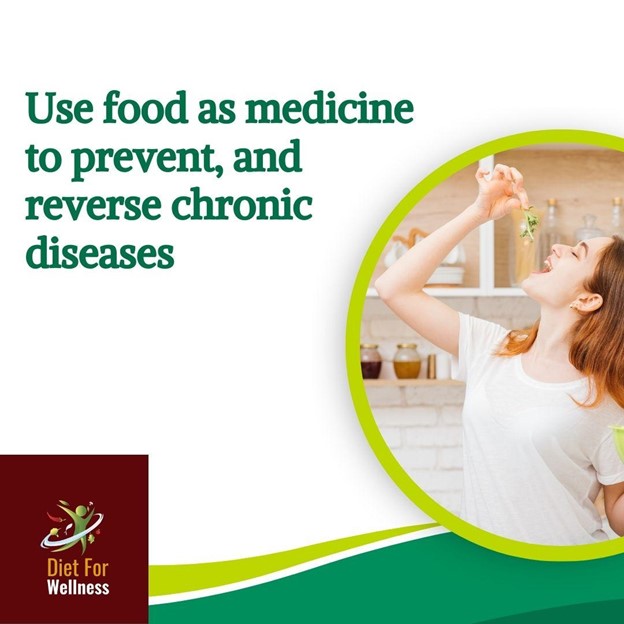Reverse chronic diseases with food as medicine

Going through a chronic disease can feel overwhelming, but in certain cases, effective management or even reversal of its effects is possible. It turns out that food holds remarkable potential as a form of “medicine” for maintaining our well-being. Eating is a universal need and pleasure, but the choices we make in what we consume play a pivotal role in shaping our longevity and vitality.
Consider hypertension (high blood pressure), affecting approximately one in five individuals in India. Lifestyle modifications are often recommended as the primary approach to managing this condition. This highlights the crucial role of diet and nutrition in addressing prevalent chronic conditions, sometimes obviating the need for medication altogether.
The concept of using food as medicine is not new. Ancient civilizations have long recognized the healing properties of certain foods and herbs. But in recent years, modern science has begun to catch up, uncovering the intricate ways in which the nutrients in our food interact with our bodies to promote health or contribute to disease.
Chronic diseases such as heart disease, diabetes, obesity, and certain cancers are among the leading causes of death worldwide. But what if I told you that many of these diseases could be prevented, or even reversed, through simple changes to your diet?
Let’s start with the basics. A diet rich in fruits, vegetables, whole grains, and healthy fats has been consistently linked to a lower risk of chronic diseases. These foods are packed with vitamins, minerals, antioxidants, and other bioactive compounds that support our immune system, reduce inflammation and protect against cellular damage.
Take, for example, the Mediterranean diet. This eating pattern, which is rich in olive oil, nuts, seeds, fruits, vegetables, and fish, has been associated with a reduced risk of heart disease, stroke, and certain cancers. The secret lies in its emphasis on whole, minimally processed foods that are naturally high in nutrients and low in unhealthy fats, sugars, and additives.
But it’s not just about what you eat; it’s also about what you don’t eat. Excessive consumption of processed foods, sugary beverages, red and processed meats, and refined grains has been linked to an increased risk of chronic diseases. These foods are often high in calories, sugar, sodium, and unhealthy fats, and low in essential nutrients, fiber, and antioxidants.
By replacing these unhealthy options with healthier alternatives, you can not only reduce your risk of chronic diseases but also potentially reverse existing conditions. For example, research has shown that adopting a plant-based diet can lower blood pressure, improve cholesterol levels, and even reverse heart disease in some cases.
But perhaps the most powerful aspect of using food as medicine is its ability to address the root causes of chronic diseases. Unlike pharmaceuticals, which often target specific symptoms or pathways, whole foods contain a complex mix of nutrients and bioactive compounds that work synergistically to promote health and healing.
For example, certain foods such as garlic, turmeric, ginger, and green tea have been shown to have anti-inflammatory and antioxidant properties, which can help reduce the chronic inflammation and oxidative stress that underlie many chronic diseases.
Similarly, foods rich in fiber, such as beans, lentils, whole grains, and fruits, can help regulate blood sugar levels, promote healthy digestion, and support weight management, all of which are important factors in preventing and managing diabetes.
Thus, the evidence is clear- food is more than just fuel for our bodies; it’s medicine. By making simple yet powerful changes to your diet, you can not only prevent chronic diseases but also potentially reverse them. So next time you sit down to eat, remember that every bite is an opportunity to nourish your body and promote health from within.
